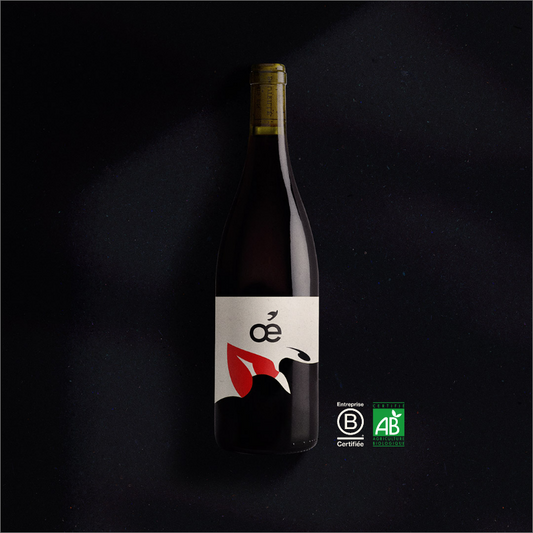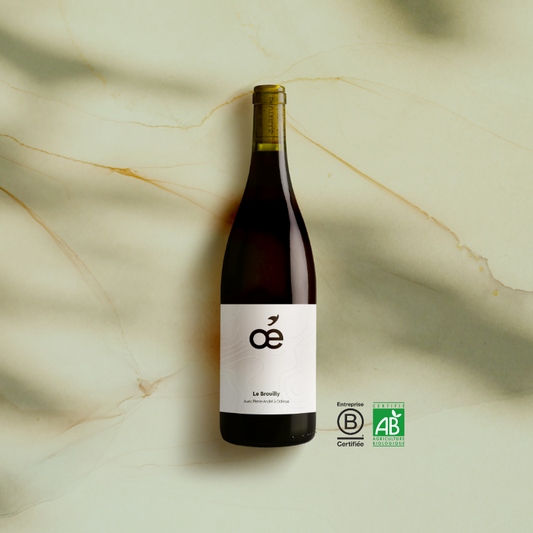Which wine for sangria?
When the sun goes down while you're looking for a little bit of freshness, nothing better than a sangria!
The name "sangria" attributed in Spain is derived from the color blood red. It is a sweet cocktail that we drink to refresh ourselves , whatever the season. It is most often found in the West Indies, America and Spain. It is also one of the best refreshments of Spanish wines.
Very fruity and simple to make, the sangria recipe is a very popular mix and everyone wonders which organic wine is ideal for making it a success. It is traditionally made from red wine , but can also be made from rosé wine or white wine . In this wine are added fruits, a little sugar, Grand Marnier, Condrieu and a bottle of very cold lemonade.
For optimal acidity, we also add lemon juice, orange juice and their zest. Cinnamon, seasonal fruits and sugar are also included in this drink to give it a tastier aspect. In order to obtain a homogeneous cocktail, the ingredients are left to macerate. At the last moment, we add sugar, if necessary and the mixture is reserved straight for the refrigerator.
How to choose a wine for sangria?
Just because you're making a sangria doesn't mean you have to go with the first bottle of wine you find. The secret to a successful sangria begins with the choice of wine and this is not done in haste. Young, light and fruity red wines are ideal for making sangria. The choice of this type of wine is quite logical. Yes, sangria is a light drink! This is why you need a young wine with moderate tannins.
You can also choose a spicy wine with notes of red fruits and undergrowth, which also come in flavors of seasonal fruits . The drink is ideal for summer periods . So it has to be refreshing and perfectly fruity. Avoid tannic wines , at the risk of weighing down your drink when your goal is to make it light. For a good sangria, you don't need to take a great wine out of the wine cellar. An organic and good wine is the solution!
Red grape varieties and appellations for sangria
The marriage of flavors is the key to the success of a good sangria based on red wine . The goal is to find a harmonious wine with the different ingredients chosen. Citrus fruits such as lemon and orange present in sangria are able to provide it with freshness and acidity, especially since it is a light drink. Cinnamon on the other hand brings a rather spicy tone. This is why it can go very well with the following 4 grape varieties:
- Syrah : this variety can be very good in a sangria. Wines made from Syrah are excellent for pairing with the balance between spicy, fruity and acidic taste. Opt for example for red Côtes-du-Rhône made from this grape variety.
- Grenache : Wines made from Grenache will also be very good for making this cocktail from Spain where it is called Garmacha. It evolves very well in the region of the south west of France where the heat reigns and the arid aspect that one finds there in summer. It is a fleshy wine with aromas of black fruits, blackberries, blackcurrants and morello cherries. It is all these flavors that ensure the fruity taste of sangria. It makes it possible to produce many wines from Languedoc or the Rhône Valley.
- Gamay , which is very often found in Beaujolais , contributes perfectly to the development of light and less tannic sangria. In general, wines made from this grape variety offer a fruity taste of strawberries and red fruits. Although the Spaniards pay less attention to this wine, it remains ideal for composing a sangria.
- The Merlot offers low tannic wines and are easy to taste with blackberry aromas. Often associated with Cabernet Sauvignon , it is found more in Bordeaux .
Sangria and rosé wine
If sangria takes its name from the expression blood red, it is not excluded that we can think outside the box and compose this lighter and fresher cocktail based on rosé wine. By making your sangria with a good rosé wine, you have two advantages at once. The rosé is light in nature and not very tannic. There is therefore a chance that you will obtain a wine devoid of heaviness in the event of a heat wave.
The second advantage is that you will have a fruity flavor, especially since rosé wine is a fruity wine with many aromatic notes, which will allow you to vary the pleasures and fill your palate.
The grapefruit aromas present in the rosé can marry perfectly with the lemon juice and the orange juice which are traditionally accommodated in this cocktail. Some rosé wines often have the tangy and sweet aromas of English sweets, red fruits including currants and strawberries, which goes very well with aperitifs. In addition to rosé from Provence, opt for a rosé from the Rhône, Beaujolais or Loire.
Sangria: how about composing with a white wine?
Yes of course ! Sangria with white wine can be a real wonder. It's true the name sangria is not at all suitable for this cocktail, but it can be very pleasant if it is associated with a sangria. We cannot list the types of wine without mentioning the white wine which is also light and has greater aromatic freshness. However, the fruits with which a white sangria is made vary.
Between white peaches, fresh ones, pineapple, strawberries, slices, you will be faced with many choices. As soon as autumn arrives, do not hesitate to add fresh figs and blackberries.
The ideal for a good sangria is to choose fruits from organic farming or seasonal fruits. This will allow you to consume drinks without pesticide residues. The wines chosen must also be made from organic grapes such as those recommended by Oé . The freshness and quality of your ingredients will make your sangria a success. The fruits are left to macerate in sugar and alcohol, which creates a certain harmony of flavors during the tasting.
You should also know that the choice of wine takes the place of the flavor you want to have. The choice of white wine will depend on the desired result. If you want a fruity white wine with exotic aromas, opt for a pinot gris or a gewürztraminer . Chardonnay can also offer a very pleasant result and the region where it is produced can influence its taste. Above all, it's important to choose a dry white wine that won't take away the already sweet taste some ingredients provide.








